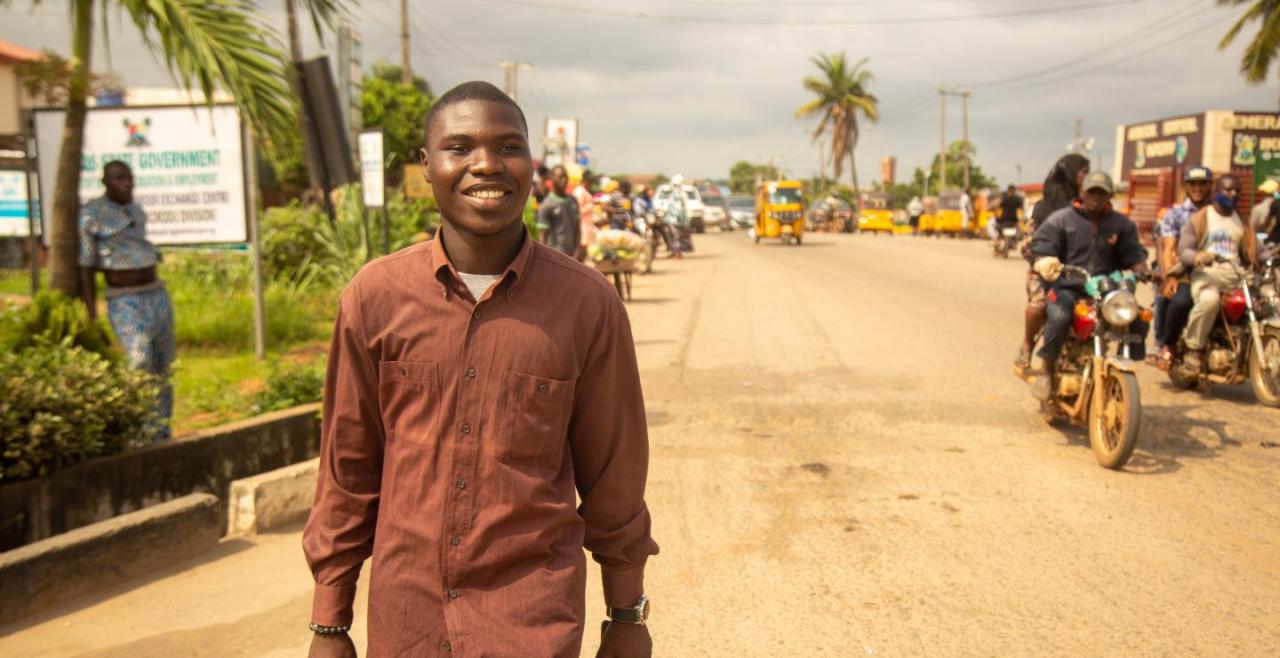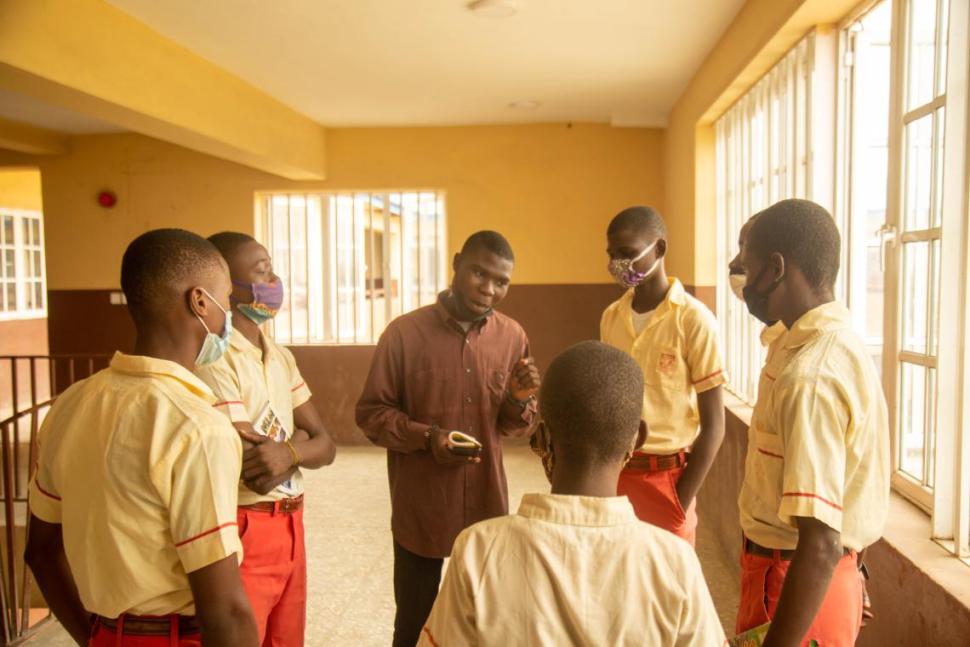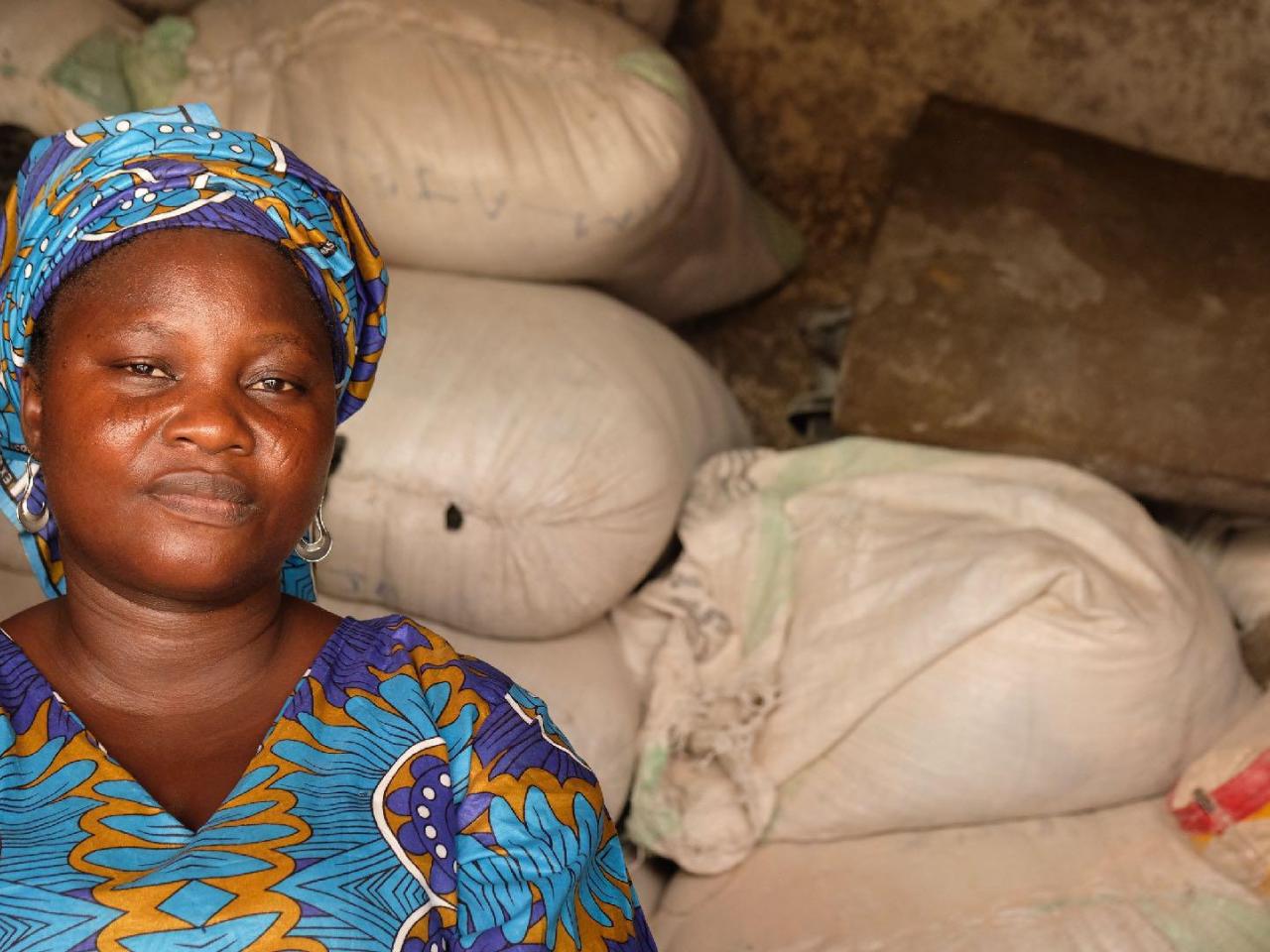In Nigeria, one man’s mission to end violence against women and girls

LAGOS, Nigeria - “A lot of our men see wife-beating as normal, because some of our cultural practices make it easy to tolerate such behaviour,” said 19-year-old Idris Oloruntade, as he left home to facilitate an information session on gender-based violence for students in one of the public schools in Ogolonto, his community.
Oloruntade is the son of the paramount leader (Baale) of Ogolonto and uses his influence to try to end violence against women and girls in his community.
His passion for activism against gender-based violence was ignited two years ago, when he discovered his aunt was being physically abused by her husband.
"It broke me, looking at my aunt with scars and suffering pain. I vowed to speak up against some of the behaviours that promote gender-based violence."
He started by ensuring his aunt’s husband was arrested. The law enforcement agents made his aunt’s husband sign an undertaking never to abuse his wife again.
Oloruntade is a member of the Ikorodu National Youth Council and works closely with the Spotlight Initiative – the global partnership between the United Nations (UN) and the European Union (EU) to eliminate all forms of violence against women and girls. With the Spotlight Initiative team, he helps to educate his community on the dangers of gender-based violence. He participates in public enlightenment campaigns and organizes awareness sessions for students in public schools in his district, sharing information on how girls can protect themselves from violence, ways to seek redress and who to contact when violations occur. He tells the boys to cultivate self-discipline and learn to walk away from situations that could lead them to commit any form of violence against girls.
"It broke me, looking at my aunt with scars and suffering pain. I vowed to speak up against some of the behaviours that promote gender-based violence." - Idris Oloruntade, Activist
His advice to boys and girls is to report every instance of violence committed against them, or the ones they have witnessed, no matter how small it might seem to them. He explained that “when cases are reported, violations become visible, and solutions are possible.” So far, Oloruntade has visited 15 public schools in his district with this message.
Oloruntade has become a rallying point for youths in Ogolonto on the topic of gender-based violence. He believes that the easiest way to win the war against the menace is for every family to become involved by reporting cases and actively following up to get justice for survivors and hold offenders accountable. That way, “no girl or woman is left behind,” he said.
Gender-based violence is often rooted in harmful social, cultural, and religious norms and is a human rights violation against women and girls. It encompasses sexual, physical, emotional, psychological, and other forms of violence and has devastating impacts on the victims, survivors, families, and communities.
Estimates published by the World Health Organization (WHO) indicate that 1 in 3 (30 per cent) of women globally have been subjected to either physical and/or sexual violence from intimate partners or non-partner sexual violence in their lifetime.
In Nigeria, the COVID-19 pandemic has only worsened the situation. The UN in Nigeria has revealed that there was an increase in the number of reported cases of gender-based violence in 23 states during the COVID-19 lockdowns in 2020.
For Oloruntade, gender-based violence is harmful to all. “Young men like me are crucial partners in bringing an end to practices and behaviors that entrench this menace.”
By Blessing Ejiofor. Originally published by UNICEF Nigeria.



